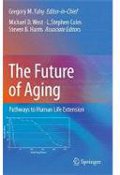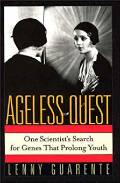Andrea Bodnar, Michel Ouellette, et al. Find An Extension of Human Cell Life-Span with the Introduction of Telomerase
 Who:Andrea Bodnar, Michel Ouellette, Maria Frolkis, Shawn Holt, Choy-Pik Chiu, Gregg Morin, Calvin Harley, Jerry Shay, Serge Lichtsteiner, Woodring Wright
Who:Andrea Bodnar, Michel Ouellette, Maria Frolkis, Shawn Holt, Choy-Pik Chiu, Gregg Morin, Calvin Harley, Jerry Shay, Serge Lichtsteiner, Woodring WrightWhen:January 16, 1998
Methods: By transfecting cells with vectors encoding the human telomerase catalytic subunit and noticing that the cells exceeded normal replicative lifespan
Institution: Geron
Where: Menlo Park, California, U.S.A
Bodnar et al. set out to test the hypothesis that replicative senescence of human cells occurs as a result of telomere shortening. To do this they ran a test and control of teomerase-negative human cell types. Specifically: retinal pigment epithelial cells and foreskin fibroblasts.
Their results showed that transfected(genetically modified) cells expressing increased levels of telomerase had lower levels of senescence biomarker B-galactosidase, and also exceeded their normal life-span by at least 20 doublings.
The authors conclude that their work establishes a causal relationship between telomere shortening and in vitro cellular senescence. Stating: "The ability to maintain normal human cells in a phenotypically youthful state could have important application in research and medicine."
References
Links




